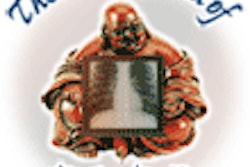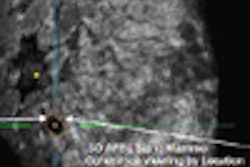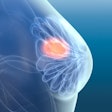The PACS administrator's job can be a stressful one. But having the right attitude and traits can help in handling the demands of the position, according to Keith Skaer, director of imaging informatics at BJC HealthCare in St. Louis.
Skaer discussed the 12 keys to the Zen of PACS administration, as determined from a survey on the ClubPACS Web site, in a talk at the annual Society for Imaging Informatics in Medicine (SIIM) meeting in Providence, RI.
The most important trait found in the survey was communication, Skaer said.
"As PACS administrators, we need to learn to speak the language," he said. "IT need folks need to understand some of the radiology terminology, and radiology folks need to understand some of the IT acronyms. And then when we're speaking to our customers, we need to be able to communicate to them on a level they understand."
PACS administrators also need to keep people informed, Skaer said. "The number one complaint I get from our radiologists is that our PACS administrators aren't communicating (to them)," he said.
It's also important to ask questions during communication with customers (the users), to ensure that both parties are very clear on the outcome, he said. A positive attitude can also help make the job a little less stressful.
In addition, organizational skills are important. Skaer suggests that administrators create routines for their daily tasks and document everything that they're doing. Processes should also be developed for tasks such as quality control.
Another beneficial trait for PACS administrators is self-motivation, Skaer said.
"Take a proactive approach," he said. "It's very important that you get out there and meet with your customers. Check your systems and monitor (them). Don't wait for an error to occur or something to break. Go out there and proactively look for things that are going on."
PACS administrators should also have the desire to learn. This could include reading trade publications, attending conferences, and browsing Internet groups, according to Skaer. Also, make contact with peers and develop relationships with vendors. "They're a very good knowledge source," he said.
Also, know what you don't know, Skaer said. "No one in this field knows everything about it," he said. "Don't be afraid to ask questions. And know where to find information."
PACS administrators should also have the ability to multitask, being able to juggle multiple projects and pressing matters, and it's important to use analytical skills, Skaer said.
"Be an investigator," he said. "We've all had problems where the modality vendor tells us it's not their problem, and the PACS vendor says it's not their problem. But it is your problem. You're the one at the facility that folks are looking at to fix their issues."
It's also important to be flexible, as technology changes at a rapid pace, he said. Good ideas can be discovered by listening to your customers. "They will be able to help you develop products and find new uses for the products," he said. "Their needs will help dictate what you do."
Patience is also a virtue in dealing with customers, as not everybody understands the technology, Skaer said.
"Most people want to do the 'right thing,' " he said. "Remember that you have customers, not users."
Creativity is also a useful skill for PACS administrators. "Use what you know to expand technology," he said. "At the same time, while you're being creative, don't feel like you have to reinvent the wheel. Get with your peers, talk to your contacts. If you'd like to do something, talk to your vendors, and say, 'Hey, is there any other facility that has exactly what we're doing here and what we'd like to do?' "
It's crucial to have a support group, Skaer said. "The stress in this job is overwhelming sometimes," he said. "It's important to have others to draw from. PACS is a team sport, not only at your facility but as a community. We need to share the information that we have, post on the Internet sites, talk to one another, get business cards, and mingle in the halls at (conventions)."
Also, and perhaps most importantly, have a life outside of work, Skaer said. With PACS being a 24/7 responsibility, it's easy to get wrapped up in the job.
"Take time off, use the vacation that you have," he said. "Work on-call rotations, do things to improve your job. It's not a selfish thing that you're doing; you're being much more proactive if you take care of yourself."
By Erik L. Ridley
AuntMinnie.com staff writer
July 23, 2007
Related Reading
PACS administrator certification program gets under way, May 30, 2007
PACS administrator certification efforts heat up, June 20, 2006
PACS training modules can smooth PACS education, operation, August 21, 2003
PACS administration offers exciting career opportunities, April 10, 2003
Copyright © 2007 AuntMinnie.com




















